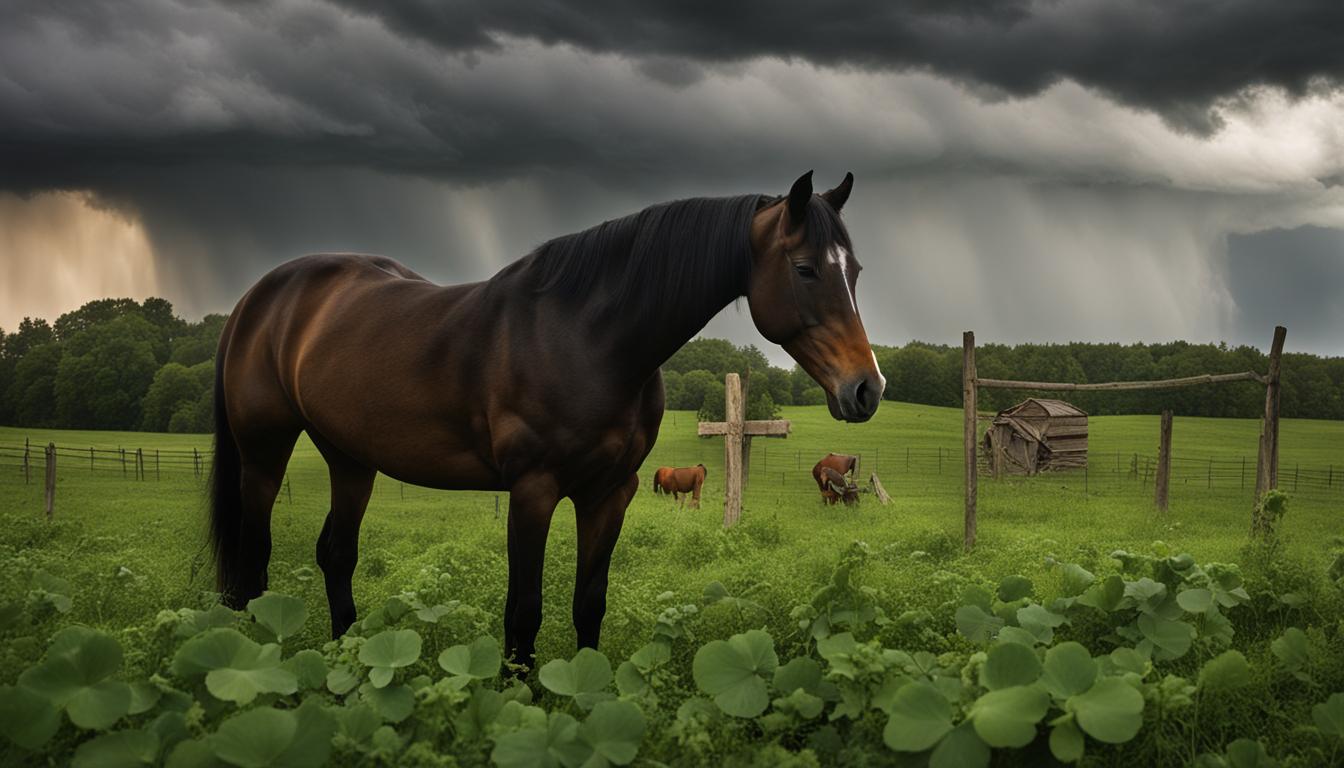For many horse owners, the decision to change a horse’s name can be a difficult one to make. This is because there are age-old superstitions and beliefs that suggest changing a horse’s name can bring about negative consequences, including bad luck.
Throughout history, horses have been given names with symbolic meanings, and these names were believed to have an impact on the horse’s character and destiny. Superstitions related to horse names have been prevalent in many cultures, and people believed that the name bestowed upon a horse could affect its performance, health, and overall luck.
In this article, we will delve into the traditions and beliefs associated with horse names, examine the superstitions surrounding horse names, and explore the various perspectives on changing a horse’s name. By the end of this article, we hope to help horse owners make informed decisions about whether or not to change their horses’ names.
Key Takeaways:
- Changing a horse’s name has been associated with bad luck and negative consequences due to long-held superstitions and beliefs.
- Throughout history, horses have been given names with symbolic meanings that were believed to have an impact on the horse’s character and destiny.
- Superstitions related to horse names have been prevalent in many cultures where people believed that the name bestowed upon a horse could affect its performance, health, and overall luck.
- Despite the superstitions and beliefs surrounding horse names, there are practical reasons why horse names may be changed, including rebranding and issues with pronunciation or ambiguity.
- The decision to change a horse’s name ultimately lies in the hands of the horse owner and whether they choose to adhere to the old beliefs or embrace a more modern approach.
Horse Name Traditions and Beliefs
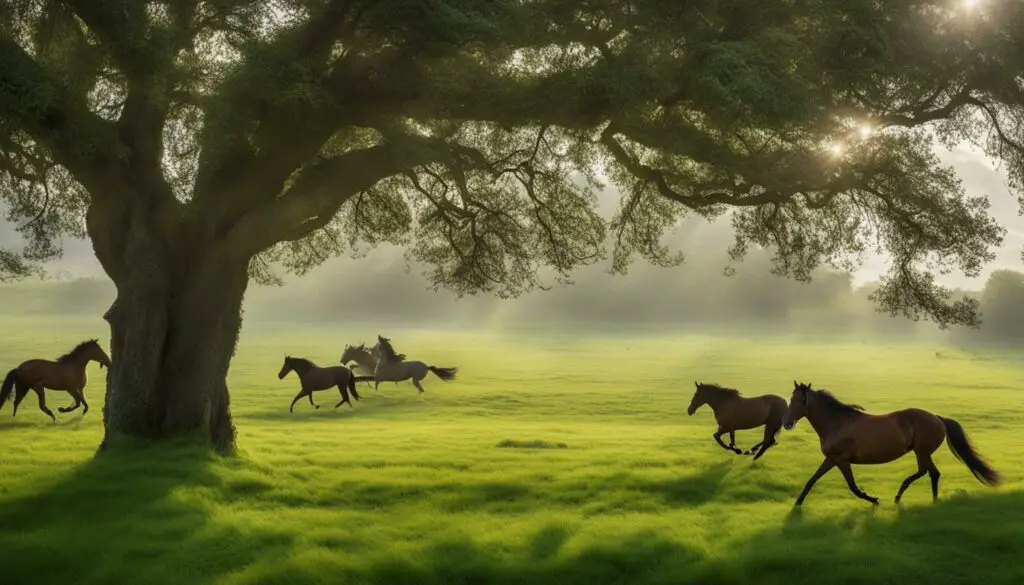
Throughout history, horses have been given names with significant meanings that were believed to have an impact on the horse’s character and destiny. In many cultures, horse names were chosen based on their physical attributes, such as coat color, markings, or body shape.
In some traditions, horses were named after heroes or gods from mythology or famous historical figures. The name bestowed upon a horse was believed to embody the qualities of the individual or deity it was named after. For example, if a horse was named after a god of war, it was expected to be bold, strong, and fearless.
Horse names were also chosen based on the owner’s personal preferences, including sentimental connections or names that reflected the horse’s unique personality traits. Some owners believed that giving a horse a name that reflected its personality would bring out its best qualities.
The Significance of Horse Names
Beliefs about horse names and their significance have been prevalent across many cultures throughout history. Native American tribes, for instance, believed that a horse’s name was sacred and held the power to influence the horse’s behavior and bring good luck to their tribe.
Similarly, the ancient Greeks believed that names held power and could influence an individual’s fate. They believed that changing a person or animal’s name could alter their destiny. This belief was also present in ancient Chinese culture, where changing a horse’s name was believed to alter its fortune.
These beliefs have contributed to the superstitions surrounding horse names and the notion that changing a horse’s name can bring about negative consequences.
Horse Name Traditions Today
While traditions and beliefs surrounding horse names have evolved over time, many horse owners still choose names based on personal preferences or meaningful connections. Some owners prefer to stick to tradition and choose names based on a horse’s physical attributes, while others opt for names that reflect their horse’s unique personality traits.
However, the belief that renaming a horse can bring bad luck is gradually losing significance today, with many horse owners embracing a more modern approach to horse naming. Practical considerations, such as rebranding or reflecting a horse’s new role, often take precedence over traditional beliefs.
“A horse doesn’t care what it’s called, it only cares how it’s treated.”
Despite the changing beliefs surrounding horse names, the bond between a horse and its owner remains as strong as ever. Whether it’s a traditional or modern name, the connection between horse and owner is based on mutual respect, care, and trust.
Superstitions Surrounding Horse Names
Horse name superstitions have been prevalent in many cultures throughout history. People believed that the name bestowed upon a horse could affect its performance, health, and overall luck. In some cultures, it was believed that a horse’s name was connected to its soul and that changing it would disrupt the horse’s essence.
Such superstitions might seem trivial to the modern-day horse owner, but they were once taken quite seriously. Here are some of the common beliefs surrounding horse names and the luck associated with them:
| Belief | Explanation |
|---|---|
| If a horse’s name starts with the same letter as its owner’s name, it will bring good luck. | People believed that having matching initials between horse and owner would create a special bond that would bring about good fortune. |
| A horse’s name should not be changed, or it will bring bad luck. | As mentioned earlier, in some cultures, a horse’s name was connected to its essence and changing it would disrupt the horse’s soul, which could lead to negative consequences. |
| A horse’s name should reflect its personality, or it will bring bad luck. | The belief was that if a horse’s name didn’t match its personality, it would create an imbalance in the horse’s spirit, leading to bad luck. |
| The number of syllables in a horse’s name can affect its luck. | Some people believed that odd-numbered syllables were lucky, while even-numbered syllables were unlucky. Others believed that the number of syllables should match the horse’s age for optimum luck. |
These are just a few examples of the superstitions surrounding horse names. Whether or not one chooses to believe in them, it’s clear that such beliefs have had a significant impact on the way horse names have been chosen and changed throughout history.
Image source: https://seowriting.ai/32_6.png
Horse Name Mythology

Horse names have played a significant role in mythology and folklore, with many stories and legends showcasing the importance of a horse’s name. In Greek mythology, the winged horse Pegasus was named after the Greek word “pegai,” meaning springs or fountains, as he was believed to have created springs wherever he struck his hoof.
In Norse mythology, the eight-legged horse Sleipnir was ridden by the god Odin and was believed to have magical powers. The name Sleipnir is derived from the Old Norse word “slíðr,” meaning “gliding,” or “smooth,” alluding to the horse’s speed and agility.
The Celtic goddess Epona was associated with horses and was believed to have a special connection with them. Horses were considered sacred animals, and their names were chosen with great care and intention, reflecting the horse’s personality, destiny, and symbolic meaning.
These mythological connections highlight the significance that horse names held in ancient cultures and how they were believed to impact a horse’s character and destiny.
The Power of a Name in Mythology
Throughout mythology, horse names were given great significance and power, with many names reflecting characteristics of the horse or the qualities that the horse was believed to possess.
For example, the name Arion means “bringer of light” and was given to a famous Greek racehorse who was said to have a shine to his coat that made him appear to glow.
The name Black Beauty, made famous by the novel of the same name, highlights the symbolic meaning that color held in horse names. Black was often associated with power, mystery, and elegance, making it a popular choice for naming horses.
“A horseman does not belong to a physical and social elite, as is the case with hunting. He must simply be someone who loves horses, understands them, and makes them do what he wants.” – Nuno Oliveira
The power of a name can be seen in the extensive use of horse names in mythology and the significance these names held in shaping the narratives surrounding horses.
Beliefs About Changing Horse Names in Mythology
Similar to the beliefs surrounding horse names today, the mythology surrounding horse names often emphasized the importance of keeping the horse’s original name. Changing a horse’s name was believed to disrupt the horse’s destiny and negatively impact its personality and performance.
In Norse mythology, Sleipnir’s name was believed to be a reflection of his magical powers, and changing his name would have disrupted his connection to Odin and his role in mythology.
The mythology surrounding horse names highlights the cultural significance and power that names held in ancient times and how these beliefs and traditions have persisted throughout history.
The Power of Names
Names have always held a significant place in various cultures. From mythology to modern times, the power of names has remained a constant. However, when it comes to changing a horse’s name, many believe that it can disrupt the connection between horse and owner, even bringing bad luck or negative consequences.
But is there any truth to this belief? Let’s explore the different perspectives on changing a horse’s name.
One argument is that changing a horse’s name can cause confusion and lead to a breakdown in communication between the horse and its new owner. This can result in a potential decrease in performance or health issues for the horse. However, some argue that a horse’s name has little impact on its performance and well-being.
Ultimately, the decision to change a horse’s name boils down to individual choice. It’s crucial to consider practical reasons for renaming a horse, such as rebranding or reflecting a new role or purpose. In these instances, changing a horse’s name can be a good thing.
“A horse is a thing of beauty, grace, and strength. Its name should reflect those qualities.”
Personal Attachments to Horse Names

For many horse owners, changing a horse’s name can feel like a difficult decision due to personal attachments to the original name. Often, the name of a horse is associated with certain emotions or characteristics that the owner has come to love and cherish, making it tough to let go of that connection.
Additionally, some owners may feel that changing a horse’s name is disrespectful to the horse and its identity. They may believe that a horse’s name is an essential part of its personality and history, and changing it could be detrimental to the horse’s overall well-being.
However, these beliefs are not necessarily grounded in fact or logic. While it’s essential to acknowledge the emotional significance that a horse’s name holds for an owner, it’s also crucial to consider the practical implications of changing a name.
Ultimately, the decision to change a horse’s name should be based on the horse’s best interests and the owner’s preferences. If a name change is necessary for practical reasons, such as resolving pronunciation issues or aligning with a horse’s new role or purpose, then it is perfectly acceptable to do so.
“Changing a horse’s name is a personal choice that should be made based on practical considerations, rather than superstitions or emotional attachments.”
However, it’s essential to remember that a horse’s name does not define its character or destiny. The horse’s personality and behavior are shaped by its experiences, training, and environment, not by its name.
As long as the horse is healthy, happy, and well-cared for, its name is irrelevant to its overall well-being. So, while it’s natural to feel attached to a horse’s name, it’s ultimately up to the owner to decide what is best for their horse.
Practical Reasons for Changing Horse Names
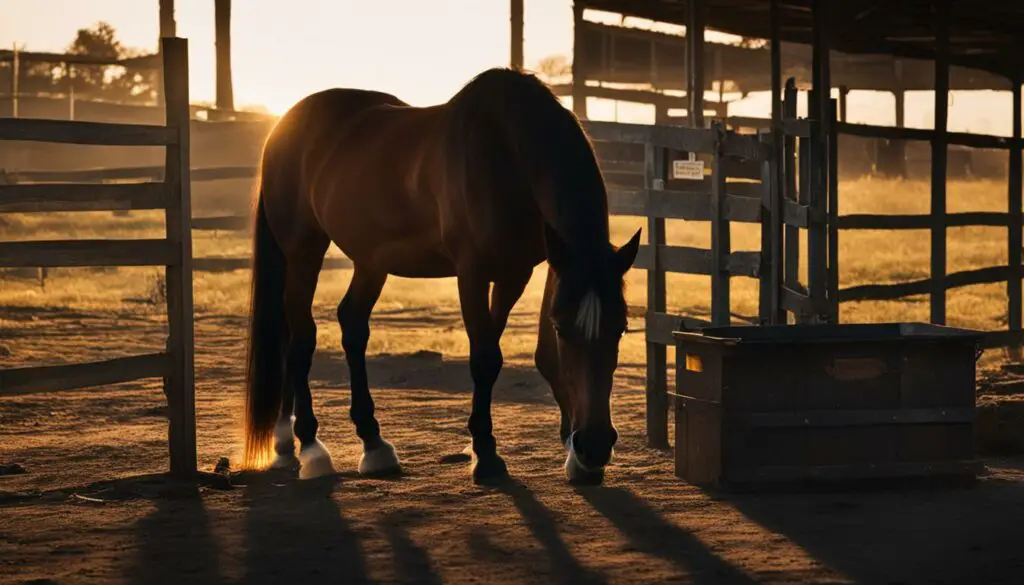
While there are plenty of beliefs and superstitions surrounding the changing of horse names, there are also practical reasons why a name change might be necessary or beneficial for a horse.
| Reason for Name Change | Explanation |
|---|---|
| Rebranding | Owners of horses that are sold or adopted may choose to change the name to better conform to their brand or stable name. |
| Pronunciation/Ambiguity | If a horse’s name is difficult to pronounce or spell, or if it is too similar to other horses’ names, it may be changed to avoid confusion. |
| New Role/Purpose | If a horse is transitioning to a new type of work or sport, a name change may be appropriate to reflect that new role or purpose. |
Regardless of the reason for a name change, it’s important to remember that the horse’s well-being should always come first. Changing a horse’s name is a relatively minor decision compared to the care and training required to ensure the horse’s happiness and success.
Case Studies: Renaming Horses
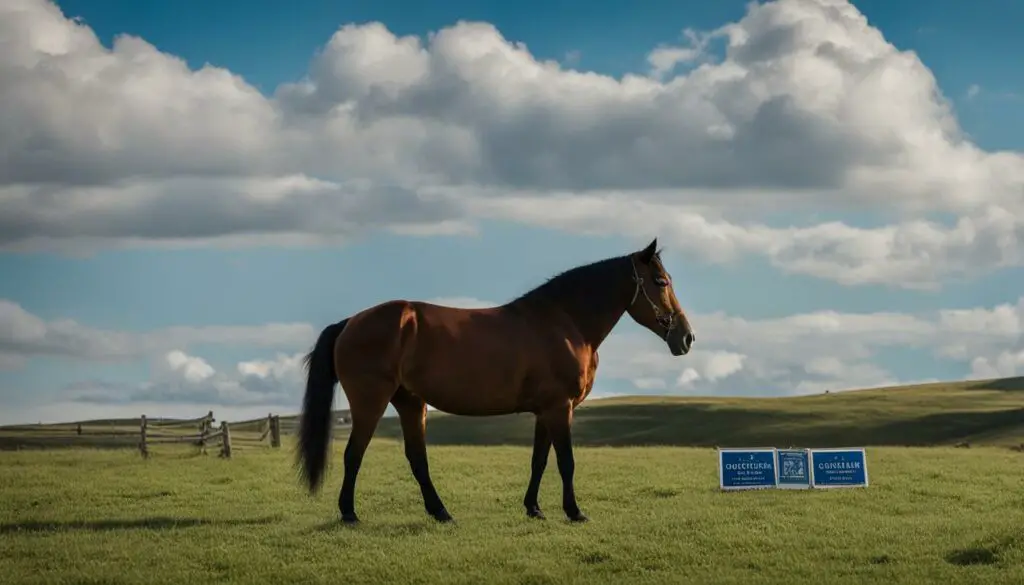
In this section, we’ll showcase some real-life case studies of horse owners who have changed their horses’ names. By examining the outcomes and experiences of these individuals, we’ll explore whether they encountered any negative consequences or experienced a shift in luck after altering the horses’ names.
| Horse Name Before | Horse Name After | Owner’s Reason for Renaming | Outcome |
|---|---|---|---|
| Spirit | Lucky | Owner believed a new name would bring good luck | The horse’s performance improved, and the owner felt luckier overall |
| Midnight | Sunshine | New name reflected the horse’s cheerful personality | No negative consequences, and the horse responded well to its new name |
| Thunder | Bolt | New name reflected the horse’s speed and agility | No noticeable changes or negative consequences |
“I was hesitant to change my horse’s name at first, but after seeing the positive impact on his performance, I’m glad I did it,” said Lucky’s owner.
These case studies suggest that changing a horse’s name may not necessarily bring about negative consequences or bad luck. However, it’s important to note that each situation is unique, and personal beliefs and attachments to horse names may play a role in the decision to rename a horse.
Modern Perspectives on Horse Names
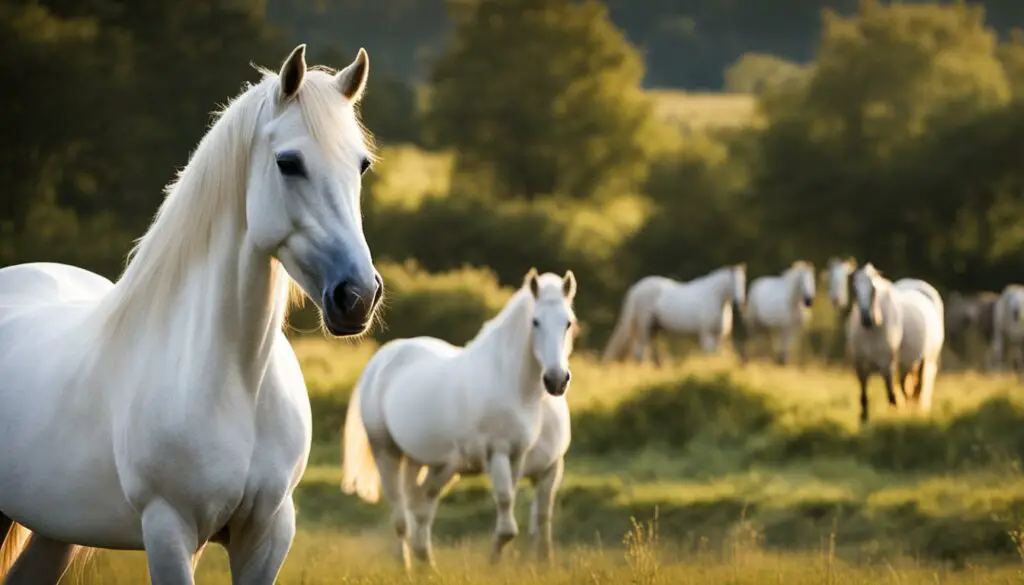
As society evolves, so do our beliefs and attitudes towards many aspects of life. The same holds for horse names. While some still abide by the old superstitions, others have a more modern outlook on the matter. In this section, we’ll explore the changing perspectives on the practice of changing a horse’s name.
The Shift Away from Superstition
One significant change in modern times has been a shift away from superstition. Many people no longer believe that changing a horse’s name will bring bad luck or negatively affect its performance. Instead, they view a name change as a personal choice and a way to reflect a horse’s new role or personality.
“I changed my Quarter Horse’s name from Peppy to Doug,” said Ashley, a horse owner from Illinois. “I wanted a name that better reflected his gentle and friendly personality. I didn’t believe in any superstition around changing his name, and I’m glad I made the decision.”
The Practical Side of Horse Names
Aside from superstition, there are practical reasons why horse names are changed. For instance, a new owner may want to rename a horse to reflect a change in ownership, or a horse may be re-homed and given a new name by the new owner. In some cases, a horse may have an ambiguous or difficult-to-pronounce name that doesn’t suit its new role.
“When I rescued my mare, she had a long and difficult-to-pronounce name,” said Jessica, a horse owner from Texas. “I wanted to give her a new name that reflected her new home and her gentle disposition. The old name just wasn’t practical in everyday use, and I needed something easier to say.”
The Significance of Personal Choice
Ultimately, the decision to change a horse’s name is a personal choice. Some people may feel a strong attachment to a horse’s original name and choose not to rename it, while others may want to give their horse a name that aligns with their personality or breed. The significance of a horse’s name varies from person to person, and what’s most important is that the owner feels comfortable with the name choice.
“I renamed my horse because I wanted a name that reflected his strong and regal presence,” said Alex, a horse owner from New York. “The old name didn’t suit him, and I wanted him to have a name that reflected his personality and presence. I didn’t believe in any superstitions, and it was ultimately my personal choice.”
Cultural Variations in Horse Name Beliefs
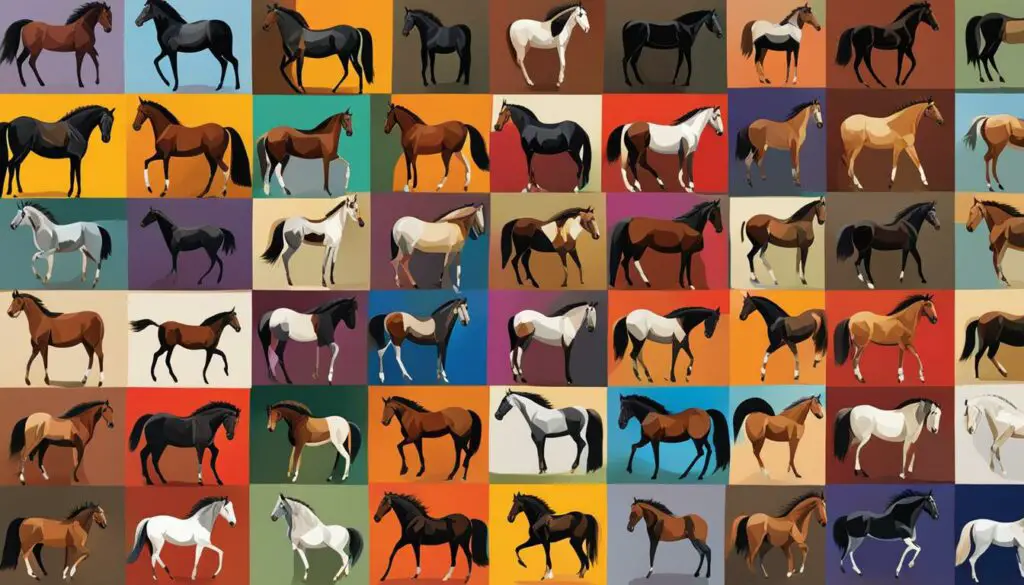
Horse name superstitions and beliefs about changing horse names can vary greatly between different cultures and regions. Let’s take a closer look at some of the unique perspectives on horse names that exist worldwide.
Japan
In Japan, horse names are carefully selected with significant thought given to their meanings. It is believed that the name given to a horse can influence its temperament and performance. Additionally, changing a horse’s name is frowned upon and considered disrespectful to the animal.
India
In India, horse names are often chosen based on the horse’s coat color. For example, a black horse may be named Kali, which means “black” in Hindi. It is believed that the name can affect the horse’s luck and success, and often the name reflects the horse’s personality or role.
Native American cultures
Many Native American cultures believed that horses were sacred animals and were given names that reflected their spiritual significance. The names often reflected the horse’s appearance or role in the tribe, and changing a horse’s name was considered inappropriate.
Western cultures
In Western cultures, horse names are often chosen based on their pedigree or breed. While superstitions surrounding horse names do exist, they are not as prevalent as in other cultures. Changing a horse’s name is generally accepted, especially for practical reasons.
As we can see, the beliefs and traditions surrounding horse names vary greatly between cultures. While some view it as bad luck to change a horse’s name, others see it as a matter of personal choice.
Changing a Horse’s Name: Personal Choice or Superstition?
After exploring the various beliefs, superstitions, and cultural variations surrounding the changing of a horse’s name, the question remains: is it a personal choice or rooted in superstition?
On one hand, changing a horse’s name can be seen as a personal choice, especially in cases where the name no longer fits the horse’s role, personality, or the owner’s preferences. Additionally, practical reasons such as rebranding or pronunciation issues may also prompt a name change.
On the other hand, the traditions and beliefs surrounding horse names cannot be dismissed entirely. For many horse owners, changing a horse’s name may disrupt the emotional connection and attachment they have with their animal, potentially affecting their relationship and performance. Furthermore, the idea that changing a horse’s name can bring about bad luck or negative consequences is deeply ingrained in many cultures and cannot be easily dismissed.
Ultimately, the decision to change a horse’s name is a personal one and depends on individual beliefs and circumstances. While some may choose to adhere to traditional beliefs, others may choose to embrace a more modern approach. Whatever the decision, it is important to consider the impact it may have on the horse and the individual’s personal attachment to their animal.
Conclusion
After exploring the traditions, superstitions, and beliefs surrounding horse names, we can conclude that whether or not changing a horse’s name brings bad luck is ultimately a personal choice. While some may adhere to the age-old beliefs, others may feel that a horse’s name should reflect their new role or purpose.
However, it is essential to consider the sentimental attachments that a horse owner may have towards their horse’s name. Renaming a horse may feel like a significant loss for some, and it’s crucial to respect these emotions when making a decision.
Changing a Horse’s Name: Personal Choice or Superstition?
While some may argue that there are practical reasons for changing a horse’s name, others believe that doing so can have negative consequences. The power of names has been recognized in various cultures, and some believe that changing a horse’s name may disrupt the connection between horse and owner, affecting their luck and performance.
Modern Perspectives on Horse Names
With changing times and evolving perspectives, the significance placed on horse names has transformed. While some still believe in the negative consequences of renaming a horse, others are more open to the idea. The decision ultimately lies in the hands of the horse owner, and they should feel empowered to make the choice that is right for them and their horse.
Cultural Variations in Horse Name Beliefs
Horse name beliefs and superstitions vary across different cultures and regions. While some cultures may place great importance on a horse’s name, others may not attach any significance to it at all. Regardless of cultural variations, it’s essential to respect these traditions and beliefs.
In conclusion, whether changing a horse’s name brings bad luck or not is a personal choice. While it’s important to consider the beliefs and superstitions surrounding horse names, ultimately, the decision should be made based on practicality and personal attachment. Horse owners should feel empowered to choose a name that reflects their horse’s new role or purpose while respecting any sentimental connections to their horse’s previous name.
FAQ
Is it bad luck to change a horse’s name?
There are superstitions surrounding horse names, but whether it brings bad luck is subjective and varies among individuals.
What are the traditions and beliefs associated with horse names?
Throughout history, horse names have been given symbolic meanings believed to impact the horse’s character and destiny.
What superstitions are there surrounding horse names?
Many cultures have superstitions that the name bestowed upon a horse can affect its performance, health, and overall luck.
What is the mythology behind horse names?
Horse names have played a role in mythology and folklore, with ancient legends and modern-day tales shaping the narratives surrounding these magnificent creatures.
Does changing a horse’s name bring bad luck?
There is a belief that changing a horse’s name might disrupt the connection between horse and owner, but the idea of bad luck is subjective.
Why do owners develop personal attachments to horse names?
Horse owners often form emotional connections or associate their horse’s personality with their name, making changing it feel like letting go of those attachments.
What are some practical reasons for changing horse names?
Practical reasons for changing horse names include rebranding, pronunciation issues, reflecting a horse’s new role or purpose, among others.
Are there any case studies on renaming horses?
We’ll showcase real-life case studies to explore the outcomes and experiences of horse owners who have changed their horses’ names.
How do modern perspectives view changing horse names?
The significance placed on horse names has evolved over time, and we’ll explore modern-day perspectives on whether changing a horse’s name brings bad luck.
Do horse name beliefs vary across cultures?
Yes, horse name beliefs and superstitions can vary across different cultures and regions, each with their unique traditions and beliefs.
Is changing a horse’s name a personal choice or rooted in superstition?
We’ll discuss the arguments for and against renaming horses to help readers decide if it is a personal choice or rooted in superstition.
